Maine Maritime Academy
A COLLEGE OF ENGINEERING, MANAGEMENT, SCIENCE, AND TRANSPORTATION
Power Engineering Technology
|Bachelor's DegreeBe at the front of the line for shoreside jobs in the rapidly growing renewable energy sector and the power generation industry with the power engineering technology degree at Maine Maritime Academy. With this ABET-accredited power engineering technology degree, you’re eligible to sit for the State of Maine Third Class Stationary Steam Engineer license and the Fundamentals of Engineering exam, which leads to Engineer–In-Training certification.
At Maine Maritime you’ll learn power engineering technology skills from a diverse faculty of highly accomplished engineers with broad backgrounds. They hold the highest degrees in their field and have the connections throughout the power generation industry that will serve you well when you pursue internships and power engineering technology jobs.
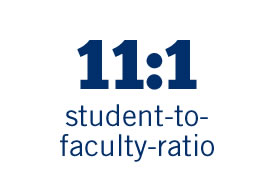
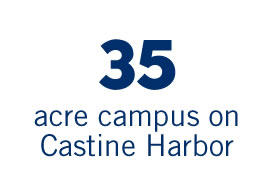
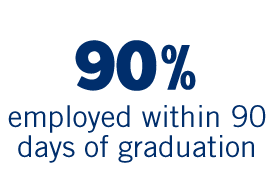
Exceptional Location
Maine Maritime Academy is ideally located on Castine Harbor. Our 35-acre campus overlooks Penobscot Bay in historic Castine, Maine. You’ll have access to the water and to other outdoor activities at nearby Acadia National Park, Baxter State Park, and the Appalachian Trail.
Shoreside Training
By studying land-based power plant operations and management through the power engineering technology degree program, you’ll be uniquely prepared for a career in power engineering technology. If you want to have the option of working either ashore or afloat, consider the marine engineering technology major.
NECHE- and ABET-Accredited
Maine Maritime Academy is accredited by the New England Commission of Higher Education (NECHE). The Power Engineering Technology program is accredited by the Engineering Technology Accreditation Commission of ABET, www.abet.org under the commission's General Criteria with no applicable program criteria. ABET accreditation demonstrates the quality of the program to employers, licensing officials, and learning institutions, including graduate schools.
Power Engineering Technology Program Objectives
Three to five years after receiving their B.S. from Maine Maritime Academy, typical Power Engineering Technology graduates are expected to be:
- Versatile engineering technologists with competencies in existing and emerging power production technologies, analytical thinking, problem solving, and with the ability, and hands-on experience, to apply these skills to solve existing and emerging problems. (1-2, 4)
- Engineering technologists who recognize the need for, and who have the ability to, remain current in their chosen field especially in the areas of teamwork and communications. (3, 5)
Power Engineering Technology Program Student Outcomes
Power Engineering Technology graduates will have these characteristics:
- An ability to apply knowledge, techniques, skills, and modern tools of mathematics, science, engineering, and technology to solve broadly-defined engineering problems appropriate to the discipline. [A]
- An ability to design systems, components, or processes meeting specified needs for broadly-defined engineering problems appropriate to the discipline. [A]
- An ability to apply written, oral, and graphical communication in broadly-defined technical and non-technical environments; and an ability to identify and use appropriate technical literature. [B]
- An ability to conduct standard tests, measurements, and experiments and to analyze and interpret the results to improve processes. [A]
- An ability to function effectively as a member as well as a leader on technical teams. [B]
Enrollment
In the 2021 Fall semester, enrollment in the Power Engineering Technology program was 86 students. For the 2020-2021 academic year, 16 students graduated from the program.
Student Perspective

What Is Power Engineering Technology?
Power engineering, a subfield of electrical engineering technology, deals with the generation, transmission, distribution, and use of electric power.
Why Study Power Engineering Technology at Maine Maritime Academy?
You’ll build the knowledge and skills you need to be a versatile engineering technologist through an undergraduate engineering program that is consistently ranked among the nation’s best by U.S. News & World Report.
Hands-on experiences
Maine Maritime delivers an extremely hands-on education in power engineering. One example: To earn your power engineering technology degree you’ll complete two 10-week industrial co-ops, usually in shoreside power plants or in commissioning of power plant construction projects.
Sophisticated labs and facilities
You’ll develop competencies in existing and emerging power production technologies through specialized labs and facilities, including our steam power plant lab, electrical lab, electronics and power control lab, and more. You’ll also prepare to earn a top power engineering technologist salary through real-world training on the State of Maine, our 500-foot training ship.
Regiment of Midshipmen
While it’s not required as a power engineering technology major, you’ll have the option to participate in Maine Maritime Academy’s Regiment of Midshipmen, a uniformed student body. Through the Regiment, you can further develop your self-confidence, self-discipline, and leadership skills, along with many other abilities valued in power engineering technology jobs.
What Can You Do With a Power Engineering Technology Degree?
With a power engineering technology degree from Maine Maritime Academy, you’ll be well-positioned for shoreside jobs across the nation in power generation and related industries and to work in construction management and manufacturing. You’ll also be ready to continue your studies at the graduate level. Our graduates work for top companies, including GE Field Services, Kiewit, Southern Power, Eversource Energy, NextEra Energy, and Sappi.
Career outlook in industrial engineering
Employment of industrial engineers is projected to grow 8 percent through 2028, according to the U.S. Bureau of Labor Statistics.
What is the average power engineering technologist salary?
The median annual wage for industrial engineers was $88,020 in May 2019, according to the U.S. Bureau of Labor Statistics.
Alumni Perspective

Explore Classes for the Power Engineering Technology Degree
Courses for power engineering technology are almost identical to the marine engineering technology program and similar to the power engineering operations and marine engineering operations programs with additional math and technology courses. To ensure you’re a well-rounded engineer with valued skills, such as communication, you’ll also take courses in the arts and sciences.
- Structured Problem Solving with Computer
- Fundamentals of Engineering Operations
- Composition
- Pre-Calculus Mathematics
- Any EC/HC/Hum/SS/HY/PY Course
- Any PE Course
- Graphics
- Humanties I
- Technical Calculus I
- Technical Physics I
- Machine Tool Practices
- Any PE Course
- Any PE Swim Course
- Steam Generators I
- Fluid Power
- Statics and Dynamics
- Technical Physics II
- Any EC/HC/Hum/SS/HY/PY Course
- Strength of Materials
- Thermodynamics I
- Welding
- Humanities II
- Electrical Power I
- Technical Communications
- Cooperative Industrial Fld Exp I
- Steam Turbines I
- Diesel Power I
- Electrical Power II
- Thermodynamics II
- Technical Calculus II
- Chemical Principles
- Steam Power Systems I
- Gas Turbines
- Computer Applications for Power
- Power Control Electronics
- Coop Industrail Field Exp II
- Thermal/Fluids Lac
- PET Capstone I
- Automation and Control
- Free Elective
- Any EC/HC/Hum/SS/HY/PY Course
- Power Engineering Technology Capstone II
- Engineering Economics
- Heating, Ventilation & Air Conditioning
- Nature and Properties of Materials
- Free Elective
View all courses for the power engineering technology degree.
Department Faculty
Get Started on Your Bachelor’s Degree in Power Engineering Technology
Take the next step toward earning your power engineering technology degree at Maine Maritime Academy.
Contact an Admissions Representative
If you’re ready to prepare for shoreside power engineering technology jobs, please contact an admissions representative at Maine Maritime Academy.
Rated Military Friendly®
Maine Maritime Academy welcomes veterans and has the resources in place to help you transition to student life. Please contact our dedicated admissions representative for veterans.
Transfer
Maine Maritime Academy welcomes motivated and academically qualified transfer students. Please contact our admissions office to learn more about transferring to Maine Maritime Academy.
Apply now and request more information
We invite you to start your application or request more information about power engineering technology at Maine Maritime Academy.

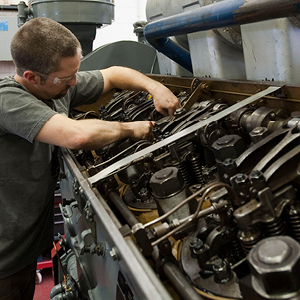
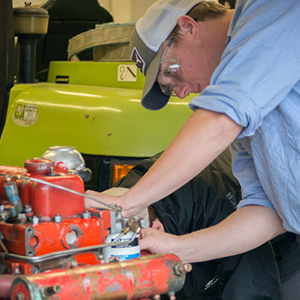
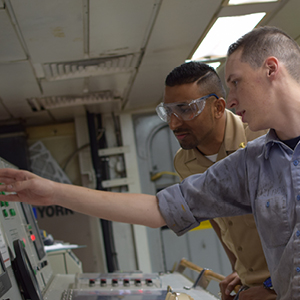
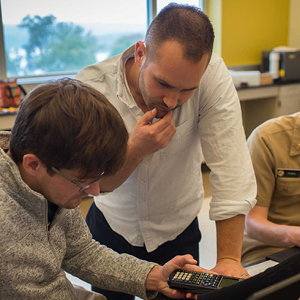







All Rights Reserved © 2025 • Web issue?
Non-Discrimination Notice • Privacy Policy & GDPR